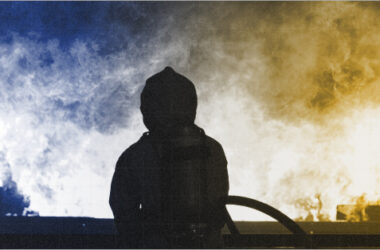When purchasing Fire Insurance, it is important to understand the terms and conditions of the policy. One important term to be aware of is the “72-hour clause”. This clause is a provision in Fire Insurance Policies that allows policyholders to claim additional damages that may arise from a covered peril. This clause is particularly useful in situations where the full extent of the damage caused by a fire is not immediately apparent. With the 72-hour clause, policyholders can rest assured that they will be compensated for any additional damages that may be discovered within 72 hours of the initial claim. This can save policyholders a lot of time and hassle and ensure that they are fully compensated for all damages caused by the fire.
Understanding the 72-Hour Clause in Fire Insurance
The 72 Hour Clause, also known as the Consecutive Hours Clause, is a provision found in most Fire Insurance Policies in India. It states that any loss of or damage to the insured property arising from a single fire peril during the period of 72 consecutive hours shall be deemed as a single event and therefore subject to one deductible and one claim limit. The purpose of the 72 Hour Clause is to prevent policyholders from making multiple claims for related losses that occur within a short period, potentially leading to excessive payouts for the insurer. By treating these losses as a single event, the clause helps ensure fair and reasonable compensation for the policyholder while protecting the insurer from excessive claims.
To take advantage of the 72-hour clause, policyholders must notify their insurance company of any additional damages within 72 hours of the initial claim. Failure to do so may result in the policyholder being unable to claim these damages later. It is therefore important for policyholders to carefully inspect their property after a fire, and to report any additional damages to their insurance company as soon as possible. However, it’s important to note that the 72 Hour Clause applies only to losses arising from the same peril. If the property suffers damage from different perils, even within the 72-hour period, each loss would be considered a separate event and subject to separate deductibles and claim limits.
In addition to reporting the damage within 72 hours, the policyholder should take steps to mitigate the damage and prevent further loss. This may include securing the property, removing debris, and making temporary repairs.
Benefits and Drawbacks of the 72-Hour Clause
A. Benefits
The 72-hour clause in Fire Insurance can be beneficial for both the insurer and the insured. One of the main benefits is that it allows the insured to take immediate action in the event of a fire. The clause provides a 72-hour window for the insured to take steps to prevent further damage to their property. This can include hiring a restoration company to begin repairs or taking steps to secure the property to prevent further damage.
Another benefit of the 72-hour clause is that it can help to reduce the overall cost of the claim. By taking immediate action, the insured can prevent further damage and reduce the cost of repairs. This can also help to reduce the amount of time it takes to settle the claim, as the insurer can quickly assess the damage and begin the claims process. The 72 Hour Clause is beneficial to the insurer as well. It allows the insurer to investigate the cause of the fire and assess the extent of the damage in a timely manner. This provision also helps prevent fraudulent claims and excessive payouts while providing fair compensation for losses caused by covered fire perils.
B. Drawbacks
While the 72-hour clause can be beneficial, there are some drawbacks to consider as well. One of the main drawbacks is that it can be difficult for the insured to act within the 72-hour window. In some cases, the insured may not be able to access their property for several days after a fire, making it difficult to take immediate action.
Another drawback of the 72-hour clause is that it can be difficult to determine when the clock starts ticking. For example, if a fire occurs at night while the policyholder is sleeping, he may not discover the damage until the morning. In this case, it may be unclear whether the 72-hour period starts from the time of the fire or from the time the policyholder became aware of the damage.
Another drawback of the 72-hour clause is that it can be confusing for the insured. The clause may not be clearly explained in the policy, and the insured may not understand their obligations under the clause. This can lead to delays in the claims process and additional costs to the insured.
In addition, the 72-hour clause may affect the amount of compensation that the policyholder is entitled to. Insurance companies may argue that the policyholder did not take adequate steps to mitigate the damage or loss within the 72-hour period, which could result in a reduction in the amount of compensation paid out.
Examples of the 72-Hour Clause
The 72-hour clause in Fire Insurance is an important policy condition that can have a significant impact on the insurance claim process. Here are a few case studies that illustrate how the 72-hour clause can affect insurance claims:
Example 1: Commercial Property Fire
A commercial property suffered a fire, and the owner filed an insurance claim. However, the insurer denied the claim citing the 72-hour clause. The owner had failed to report the fire to the insurer within 72 hours of its occurrence. As a result, the insurer was not liable to pay the claim.
Example 2: Property Fire Damage
A homeowner had a Fire Insurance Policy with a 72-hour Clause. One day, the roof of his property was partially damaged by a fire. Since he was away and could not address the issue on time, the fire got intensified and caused further damage to the property a day later. The homeowner filed a claim with their insurance company.
The insurance company applied the 72-hour Clause and treated the two incidents as a single event. This meant that the homeowner only had to pay one deductible for the two incidents. The insurance company reimbursed the homeowner for the full cost of repairing the entire property damaged by the fire.
Example 3: Cyclone Damage
A business owner in coastal India had a Fire Insurance Policy with STFI (Storm, Tempest, Flood, and Inundation) cover. It also had a 72-Hour Clause. On the first day of a cyclone, the roof of one of his business properties was partially damaged. Two days later, the cyclone intensified and caused further damage to his extended property. The business owner filed a claim with their insurance company.
The insurance company applied the 72-Hour Clause and treated the damages as a single event. This meant that the business owner only had to pay one deductible for the damage. The insurance company reimbursed the business owner for the full cost of repairing the property damage.
Conclusion
We can conclude by saying that the 72 72-hour clause is a crucial component of Fire Insurance Policies in India, ensuring a balance between policyholder protection and the insurer’s financial stability. It is important to note, however, that the 72-hour clause does not excuse policyholders from taking reasonable steps to prevent or mitigate damage. Insurers may still refuse to pay out if they believe that the policyholder acted negligently or failed to take appropriate action.
Overall, the 72-hour clause is a valuable addition to any Fire Insurance Policy. Policyholders should be aware of its limitations and ensure that they take all necessary steps to protect their property in the event of a fire.
Frequently Asked Questions
- What is the automatic reinstatement clause in Fire Insurance?
The automatic reinstatement clause in Fire Insurance ensures that the sum insured is automatically reinstated after a loss, without any additional premium being charged. This means that the policyholder will not have to worry about being underinsured in the event of a subsequent loss.
2. What is the waiver of contribution clause in Fire Insurance?
The waiver of contribution clause in Fire Insurance states that if the property is insured under more than one policy, and a loss occurs, the insurer will pay the full amount of the loss, without requiring the policyholder to contribute to the loss. This means that the policyholder will not have to pay any additional amounts beyond their policy limit.
3. What is the escalation clause in Fire Insurance?
The escalation clause in Fire Insurance allows for an automatic increase in the sum insured at each policy renewal. This is to account for inflation and ensure that the policyholder is adequately insured.
4. What are the goods held in the trust clause in Fire Insurance?
The goods held in trust clause in Fire Insurance covers the loss of property that is held in trust by the policyholder. This includes property that is held for safekeeping, as well as property that is being transported or stored on behalf of others.








